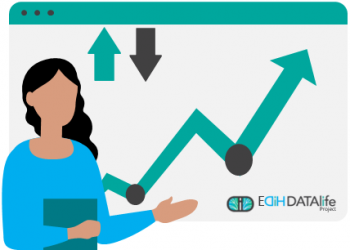Se estás buscando financiación, aquí che deixamos unha ampla base de datos onde poderás atopar as convocatorias que mellor se adapten ás túas necesidades.

Haz click en para ver más detalles de la convocatoria.
Exportar a CSV
| Título | Organismo | Área(s) | Tecnologías | Destinatarios | Estado | Apertura | Cierre | Ámbito | Tipo | |
|---|---|---|---|---|---|---|---|---|---|---|
|
GALICIA AVANZA – Convocatoria 2025 |
Tecnopole y Xunta de Galicia |
Biotecnológico |
Otras |
Pyme |
Abierta |
|
25/03/25 |
Regional |
Servicios/Soporte Otro |
|
|
EIT Health Bootcamps |
EIT Health |
Salud-Cuidados |
Otras |
Start-up |
Próximamente |
|
16/04/25 |
|
Servicios/Soporte Otro |
|
|
EIT Health Women Entrepreneurship Bootcamp |
EIT Health |
Salud-Cuidados |
Otras |
Start-up |
Próximamente |
|
16/04/25 |
|
Servicios/Soporte Otro |
|
|
EIT Health Start-ups Meet Pharma: take up the challenge |
EIT Health |
Salud-Cuidados |
Otras |
Pyme Start-up |
Próximamente |
|
09/05/25 |
|
Servicios/Soporte Otro |
|
|
EIT Health MedTech Bootcamp |
EIT Health |
Salud-Cuidados |
Otras |
Pyme Start-up |
Próximamente |
|
28/05/25 |
|
Servicios/Soporte Otro |
|
|
IG408M – IA 360, AXUDAS PARA O DESENVOLVEMENTO TECNOLÓXICO E A INNOVACIÓN MEDIANTE O USO DA INTELIXENCIA ARTIFICIAL |
IGAPE |
Agroalimentario Biotecnológico Forestal-Madera Mar-Industria Salud-Cuidados |
IA y analítica de datos Datos |
Pyme Start-up Spin-off Gran Empresa |
Abierta |
22/01/25 |
31/10/25 |
Regional |
Subvención |
|
|
Digital Garden |
Almirall |
Biotecnológico Salud-Cuidados |
Otras |
Start-up |
Próximamente |
|
|
Europeo |
Servicios/Soporte |
|
|
Enagás Emprende |
Enagás Emprende |
Biotecnológico |
Otras |
Start-up |
Próximamente |
|
|
Nacional |
Servicios/Soporte |
|
|
Emprende inHealth |
UnLimited Spain |
Salud-Cuidados |
Otras |
Start-up |
Próximamente |
|
|
Nacional |
Servicios/Soporte |
|
|
JLABS (Johnson & Johnson Innovation) |
Johnson & Johnson |
Biotecnológico Salud-Cuidados |
IA y analítica de datos Datos Computación de altas prestaciones Otras |
Pyme Start-up Spin-off DATAlife Gran Empresa Centro Tecnológico Cluster |
Próximamente |
|
|
Europeo |
Servicios/Soporte Capital Riesgo Fondos de Inversión Corporate Venture Capital Otro |
|
|
Programa Innovation Coworking ALS Galicia |
ALS Galicia |
Agroalimentario Biotecnológico Salud-Cuidados |
Otras |
Pyme Start-up Spin-off Centro Tecnológico Universidad |
Próximamente |
|
|
Regional |
Servicios/Soporte Otro |
|
|
e-Health Future |
Insomnia |
Biotecnológico Salud-Cuidados |
IA y analítica de datos Internet de las cosas y conectividad Datos Computación de altas prestaciones Ciberseguridad Otras |
Start-up Spin-off Otros |
Próximamente |
|
|
Nacional |
Servicios/Soporte |
|
|
FONPYME |
COFIDES |
Agroalimentario Biotecnológico Forestal-Madera Mar-Industria Salud-Cuidados |
Otras |
Pyme Start-up Spin-off Otros |
Próximamente |
|
|
Nacional |
Préstamo Servicios/Soporte |
|
|
FIEX |
COFIDES |
Agroalimentario Biotecnológico Forestal-Madera Mar-Industria Salud-Cuidados |
Otras |
Pyme Start-up Spin-off Otros |
Próximamente |
|
|
Nacional |
Préstamo Servicios/Soporte Fondos de Inversión |
|
|
Hub Salud Lanzadera |
Lanzadera |
Biotecnológico Salud-Cuidados |
Datos |
Start-up Spin-off Otros |
Próximamente |
|
|
Nacional |
Préstamo Servicios/Soporte Otro |
|
|
Púlsar by Roche |
Aceleradora de startups que nace para impulsar la innovación en oftalmología y otras áreas terapéuticas. |
Biotecnológico Salud-Cuidados |
IA y analítica de datos Datos Computación de altas prestaciones Otras |
Start-up Spin-off Otros |
Próximamente |
|
|
Nacional |
Servicios/Soporte |
|
|
Emprendedoras Digitales |
ENISA |
Agroalimentario Biotecnológico Forestal-Madera Mar-Industria Salud-Cuidados |
IA y analítica de datos Internet de las cosas y conectividad Datos Computación de altas prestaciones Ciberseguridad Otras |
Pyme Start-up |
Abierta |
03/01/22 |
|
Nacional |
Préstamo |
|
|
Programa Activa Industria 4.0 |
EOI |
Agroalimentario Biotecnológico Forestal-Madera Mar-Industria Salud-Cuidados |
IA y analítica de datos Internet de las cosas y conectividad Datos |
Pyme |
Abierta |
13/07/23 |
|
Nacional |
Subvención |
|
|
DigiCirc |
DigiCirc |
Agroalimentario Biotecnológico Mar-Industria |
Otras |
Pyme Start-up Spin-off |
Próximamente |
|
|
Europeo |
Subvención Servicios/Soporte |
|
|
Industria 4.0 |
Cámara de Comercio de España |
Agroalimentario Biotecnológico Forestal-Madera Mar-Industria Salud-Cuidados |
IA y analítica de datos Internet de las cosas y conectividad Datos |
Pyme Start-up |
Abierta |
03/01/22 |
|
Nacional |
Subvención Servicios/Soporte |
